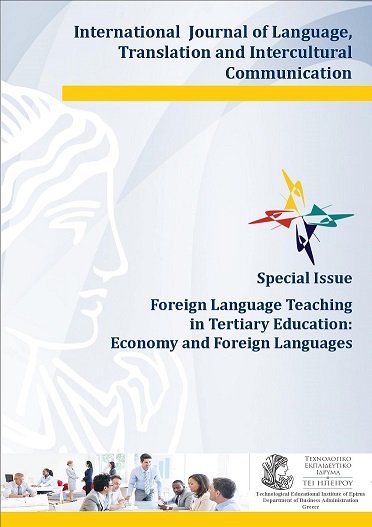The role of foreign languages in hospitality management

Abstract
The paper addresses the subject of foreign languages in hospitality management under the scope of their significance for the Greek hospitality industry and their role in the hospitality management education.
Multilingualism offers a competitive advantage to both companies operating in the global hospitality market as well as people who pursue a career in it. The data presented herewith derives from a quantitative research that targeted managers of luxury hotels operating in Greece and hospitality management students.
The key findings indicate a contradiction between theoretical acknowledgement of the importance of foreign languages in hospitality management and its practical promotion, particularly in regard to fluency in foreign languages, in service training initiatives and level of offered training courses. The paper aims to bridge the gap by showcasing up to date studies and presenting the special features of the Greek reality to promote further investigation of the field and to encourage specific action.
Article Details
- How to Cite
-
TZIORA, N., GIOVANIS, N., & PAPACHARALABOUS, C. (2016). The role of foreign languages in hospitality management. International Journal of Language, Translation and Intercultural Communication, 4(1), 89–97. https://doi.org/10.12681/ijltic.10353
- Section
- Articles

This work is licensed under a Creative Commons Attribution-NonCommercial-ShareAlike 4.0 International License.
Copyright Notice
Authors who publish with this journal agree to the following terms:
- Authors retain copyright and grant the journal right of first publication with the work simultaneously licensed under a Creative Commons Attribution License that allows others to share the work with an acknowledgement of the work's authorship and initial publication in this journal.
- Authors are able to enter into separate, additional contractual arrangements for the non-exclusive distribution of the journal's published version of the work (e.g., post it to an institutional repository or publish it in a book), with an acknowledgement of its initial publication in this journal.
- Authors are permitted and encouraged to post their work online (e.g., in institutional repositories or on their website) prior to and during the submission process, as it can lead to productive exchanges, as well as earlier and greater citation of published work (See The Effect of Open Access).


